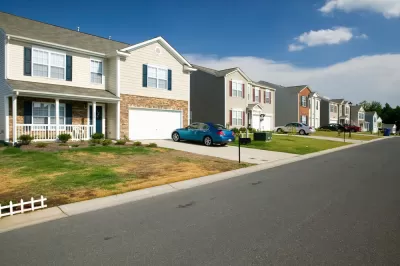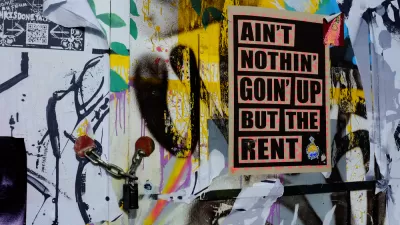There's been no shortage of discussion and debate about what's causing the price of homes in the United States to skyrocket at record rates, but less discussion of the consequences for housing market trends on the broader economy.

Don Layton, former CEO of Freddie Mac, writes for the Joint center for Housing Studies of Harvard University to amplify recent data about the state of the U.S. homeownership market after 17 months of the Covid-19 pandemic.
On September 28, the Federal Housing Finance Agency (FHFA), the regulator of Freddie Mac, Fannie Mae, and the Federal Home Loan Banks, reported its monthly index of house prices for July. It showed an astounding increase of 19.2 percent over the prior 12 months and that, in the 17 months since the pandemic began, the increase has been 22.5 percent. This is the fastest increase since record-keeping began, including in the run-up to the bubble in 2007-8. By the time we reach the second anniversary of the pandemic, given today’s momentum for more increases, a reasonable estimate is that prices may have climbed by at least 30 percent over those two years. (If the most recent rate of increase—a very high 1.4 percent in just one month—continues, the two-year increase would actually be about 35 percent!)
This kind of price appreciation isn't normal, according to Layton, who takes the new data a step further by providing analysis of the consequences of the skyrocketing cost of owning a home in the United States. Layton provides additional details in the source article for the four consequences listed below:
- Increasing equity from the rising value of homes will lead to increased household consumption, which, in turn, will increase the Gross Domestic Product (and higher GDP means employment growth and wage increases).
- The $4.5 trillion gap in wealth between homeowning families and renting families will continue to widen. According to Layton, " 'have' and 'have-not' is increasingly becoming synonymous with whether a family owns their home or not.
- Runaway home prices are likely to shift the usually obstinate homeownership rate in the United States (which has hovered around 65 percent for 50 years).
- The runaway cost of housing will also "inadvertently" cause reports to underestimate the effect of inflation. According to Layton, "policymakers are flying more than a bit blind, not seeing the inflation that the citizenry feels (especially those looking to buy their first home). That does not bode well for those policymakers, especially at the Federal Reserve, making the best decisions."
FULL STORY: WHAT DO RUNAWAY HOME PRICES MEAN FOR THE US?

Planetizen Federal Action Tracker
A weekly monitor of how Trump’s orders and actions are impacting planners and planning in America.

Restaurant Patios Were a Pandemic Win — Why Were They so Hard to Keep?
Social distancing requirements and changes in travel patterns prompted cities to pilot new uses for street and sidewalk space. Then it got complicated.

Map: Where Senate Republicans Want to Sell Your Public Lands
For public land advocates, the Senate Republicans’ proposal to sell millions of acres of public land in the West is “the biggest fight of their careers.”

Maui's Vacation Rental Debate Turns Ugly
Verbal attacks, misinformation campaigns and fistfights plague a high-stakes debate to convert thousands of vacation rentals into long-term housing.

San Francisco Suspends Traffic Calming Amidst Record Deaths
Citing “a challenging fiscal landscape,” the city will cease the program on the heels of 42 traffic deaths, including 24 pedestrians.

California Homeless Arrests, Citations Spike After Ruling
An investigation reveals that anti-homeless actions increased up to 500% after Grants Pass v. Johnson — even in cities claiming no policy change.
Urban Design for Planners 1: Software Tools
This six-course series explores essential urban design concepts using open source software and equips planners with the tools they need to participate fully in the urban design process.
Planning for Universal Design
Learn the tools for implementing Universal Design in planning regulations.
Heyer Gruel & Associates PA
JM Goldson LLC
Custer County Colorado
City of Camden Redevelopment Agency
City of Astoria
Transportation Research & Education Center (TREC) at Portland State University
Camden Redevelopment Agency
City of Claremont
Municipality of Princeton (NJ)





























